Monthnotes January 2025

I don't think I've got too much that I've published in the last month to share, because I've spent most of it on holiday and firmly in "input" mode. So this is very much an input newsletter.
One housekeeping note before we begin. I'm going to be in the UK for a couple of weeks in the middle of February (more on this below). I don't have loads of plans yet, so now is the time to send me an email and say "hey let's get a coffee/beer/donut" and we can see if we can make it happen. Don't be all "oh I'm not sure, he probably doesn't even remember who I am". Just drop me a message and let's organise something.
I wrote up some of my games of 2024 in the last newsletter, but I wrote a bit more detail for a post on a forum so I figured I'd share it here too.
Three games I loved in 2024:
- Satisfactory - a perfectly-tuned blend of Factorio-like automation, Breath of the Wild exploration, and Minecraft decoration. Fell into this in September, and played almost nothing else for two months.
- Animal Well - came out just as my annual hayfever hit, and spending time in its dark, dank caves was the perfect balm while everyone else was out having fun in the sunshine.
- Dicey Dungeons - I got a little obsessed with this cute and creative smartphone roguelike in the late summer, almost 100%ing it. The writing and humour was spot-on for me.
Three games I thought were okay:
- Super Mario Bros Wonder - the easy bits felt too easy and the hard bits felt too hard, but it was colourful and fun to blaze through. Paid full price for it and didn’t feel like it was quite worth that.
- Baldur’s Gate 3 - I got a Steam Deck in July, mostly to play this. I picked this up and fell deep into it. I had to return the Deck for a small repair a few weeks later, though, and when it came back I didn’t pick it up at all. Its hooks weren’t as deep into me as I thought. I do want to play it some more, but I’m not feeling any massive urge.
- Caves of Qud - Early days on this - I only bought it a couple of weeks ago. I’m finding the interface hard to cope with, and it feels like the gamepad controls are a distinct afterthought, but the world is compelling and I’m excited about reaching the Six Day Stilt for the first time. Adding this tutorial mod helped me a lot.
Three games I tried and really didn’t get on with:
- Neva - Here’s the pitch: run rightward forever while getting confused because things that look like scenery hurt you and things that look like platforms are scenery. Sure it’s pretty, but there’s nothing deeper than that on offer.
- Balatro - Tried this on Apple Arcade and didn’t find it fun in the slightest. It probably didn’t help that I’ve never really played or wanted to play poker.
- Cult of the Lamb - Wasn’t a fan of the graphical style, but it got good reviews and was discounted so I gave it a solid try. The whole time I kept thinking it was going to get more fun while it got increasingly less fun.
Three games I’m excited about playing in 2025
- Arco - an anticolonial mesoamerican fantasy RPG, which I’ve played just a few hours of and have been very much enjoying. Beautiful visuals, great controls, great combat mechanics, great story. Harder than I was expecting it to be!
- Citizen Sleeper 2 - I loved the original a few years back - it’s a dice-driven narrative RPG where you slowly but surely turn a bleak space station into a protopia. I’m very excited about getting back into the world.
- Hollow Knight: Silksong??? Maybe??? Finally???
I'm also really enjoying Fields of Mistria right now - playing one in-game day for every real-world day. I wasn't convinced I'd enjoy a Stardew Valley clone with a sliiiightly more anime art style than the original. But it files all of the rough edges off its forebear (omg you can shop at any time of day) and the writing and characters are fun, so it's no less of a joy than its forebear. Turns out that more of a good thing is a good thing.
I bought and built a Music Thing Modular Workshop System. It's lovely! A really easy build, and a lot of fun to play with. Tonnes of modular synth for your money, and it plays very nicely with other devices too. If you like synths and you're somewhat handy with a soldering iron or you know someone who is, then it comes highly recommended. I've really looking forward to diving into the computer cards.
I'm trying to avoid posting AI links here because we're all reading enough of it as it is, but Matt Webb's writeup of "narrative jailbreaking" a psychology AI is too fun not to share.
You know you own your data, yeah? Meta, for example, doesn't own it - when you sign up to their services, you basically give them permission to use it. That's why at any time you can request a copy of all of your data that a company is holding, and also request that they delete it.
Glenn McDonald, founder of the Echo Nest and the creator of Spotify's "Discover Weekly" has written a nice short thing about this and why you should care. Here's a little bit:
Today most computational power is structurally centralized and hoarded, and thus its potential for conversion into human energy is constrained and reduced. Most software is made by corporations, formulated for their corporate goals, and sealed against any other access or experimentation. Recent developments like LLM AIs seem inertially on a path towards even more centralized power-control and thus individual and social powerlessness.
We want a future, instead, in which creative power is widely distributed and human energy is bountifully amplified. We want software creation to be democratized so that our sources of imagination can be more broadly recruited. We want people and groups to have the power to pursue their own goals, not just for our own narrow sakes, but for our collective potential.
I also love the last line: "I'm pretty sure we only get dreamier futures by dreaming."
Relevant to the above, there's an interesting strand of thinking emerging with people saying "Yeah big tech sucks but the 'big' is the problem, not the 'tech'. Tech is actually pretty great, we just don't see it behind the corporate awfulness".
This article from Matt Klein on why "unplugging is not the solution" is part of that. He writes: "Our strength should not be measured by our ability to push away our tech, but by our ability to hold and live with tech in peace."
Instead of mourning our sense of direction, how can we use our map apps to seek out tiny shops and cafes for a better sense of locality and sense of neighborhood in cities? Instead of falling into endless content holes, how can we congregate and self-teach ourselves material which was once worth tens of thousands of dollars behind an ivy academic wall, and is now free on YouTube this very second? These are options. We forget we have them.
Also relevant to the above, I couldn't shed much more than crocodile tears for these TikTokers losing half of their audience with the upcoming US ban. If a platform owns your audience, it's not your audience. Newsletters (not Substacks) all the way.
Oh yeah - I wanted to say a little more about the UK trip. I'm coming by train, which I've done once before. It's about a day and a half travel each way, including an overnight stay in Cologne. Total cost for the return trip, including the overnight stays, is about €560.
That's not too bad, I don't think? Sure, it would cost me less if I flew, but that's because we don't pay the true cost of carbon pollution. Going by the latest figure for the social cost of carbon (US$1367 per ton), the equivalent trip by plane costs society about €600, on top of the actual cost of buying a ticket.
Factoring in some small carbon costs around the train and hotel, I would guess that the train works out a bit cheaper overall right now (though the gap will widen as the climate becomes less stable in the coming years). I didn't think they'd be so close, but it's interesting that they are.
I'm still keeping an eye on the environmental impact of artificial intelligence. Simon Willison's roundup of 2024 in AI nicely summarises what I've been reading over the last year or so, saying both that "The environmental impact got better" and "The environmental impact got much, much worse".
You might think these are contradictory but they're not - they're talking about different perspectives. The first is from the view of a user.
As individual users, we don’t need to feel any guilt at all for the energy consumed by the vast majority of our prompts. The impact is likely neglible compared to driving a car down the street or maybe even watching a video on YouTube.
The second is from a systems perspective.
Companies like Google, Meta, Microsoft and Amazon are all spending billions of dollars rolling out new datacenters, with a very material impact on the electricity grid and the environment. There’s even talk of spinning up new nuclear power stations, but those can take decades.
He notes that there's a direct comparison point here to the rollout of the railways in the 1800s.
Constructing these required enormous investments had a massive environmental impact, and many of the lines that were built turned out to be unnecessary—sometimes multiple lines from different companies serving the exact same routes! The resulting bubbles contributed to several financial crashes, see Wikipedia for Panic of 1873, Panic of 1893, Panic of 1901 and the UK’s Railway Mania. They left us with a lot of useful infrastructure and a great deal of bankruptcies and environmental damage.
So is AI bad for the environment? Unquestionably yes. Is your use of AI bad for the environment? Probably not, unless you're someone with the power to decide whether or not to train a new model (in which case say no).
New years resolutions: More of the same, plus swimming.
See you in a month.
Duncan

